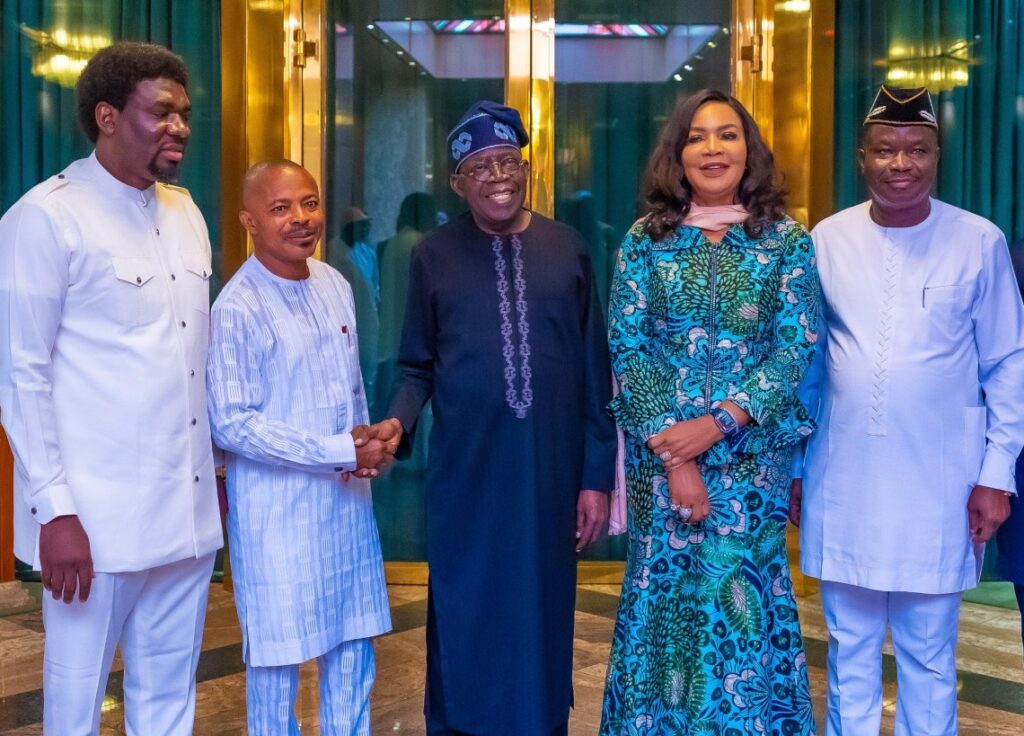Yesterday’s talks between President Bola Tinubu and the Organised Labour on minimum wage were adjourned until next week.

The Tripartite Committee on the new national minimum wage had recently submitted two figures to the President as the organised private sector and the government team offered to pay N62,000, while the Organised Labour demanded N250,000.
Following the disagreement on the figures, the President had delayed sending any figure to the National Assembly through the Executive Bill to consult with all the relevant stakeholders in order to resolve all the contentious issues.
Ajaero, who addressed State House Correspondents after the meeting, said there were no negotiations at the one-hour meeting.
“In a real sense, it wasn’t a negotiation but a discussion and we have had that discussion. We agreed to look at the real terms, probably and reconvene in the next one week.
“Now the status quo in terms of the amount N250,000 and N62,000 remains until we finish this conversation.” he said.
However, the President of Trade Union Congress Festus Osifo said, “We made all the arguments, the economic analysis, macro, micro, fiscal and monetary issues. So we put everything forward and at the end. The President made his remark as the President and we all agreed. Let’s go back to internalise it, have some conversations and by one week time, we will come back and we will continue the meeting.”
On his part, the Minister of Information and National Orientation, Mohammed Idris, said he remained hopeful of a positive result after next week’s talks.
Idris explained, “Recall that already there is 62,000 naira that has been put out there from the government side and the organized private sector but the Organised Labour is still not accepting that but we know that they will come to the table, we know that this is something that is going to be workable for Nigerians.
“The Organised Labour and the government will reach an agreement. We have adjourned now for a week. The labour union has asked the government to allow them at least a week to discuss further and we have allowed them.
“President Tinubu suggested that instead of waiting for five years to review the minimum wage, we can continue to have a dialogue and see the possibility of reviewing it every two years.
Meanwhile, President Tinubu has suggested the review of Nigeria’s minimum wage every two years as opposed to five as stipulated in the law.
He premised this suggestion on the argument that Nigerian workers deserve improved welfare, better wages, as well as safe and enhanced working conditions as the driving force of the nation.
The Special Adviser to the President on Media and Publicity, Ajuri Ngelale, revealed this in a statement he signed Thursday titled ‘President Tinubu to Labour leaders: I am concerned about Nigerian workers and committed to a just, realistic minimum wage.’
President Tinubu said he was concerned about the welfare of Nigerian workers and that his administration was prioritising their concerns.
“I pay attention to everything around me. A happy worker is a productive worker and society depends on the productivity of the happy worker,” the President said.
However, he called for realistic expectations as regards the minimum wage question, stating: “You have to cut your coat according to available cloth. Before we can finalise on the minimum wage process, we have to look at the structure.
“Why must we adjust wages every five years? Why not two? Why not three years? What is a problem today, can be eased up tomorrow.
“There is much dynamism to this process if we are not myopic in our approaches. We can take a surgical approach that is based on pragmatism and a deep understanding of all factors.”
In his remarks, the NLC President, Ajaero, emphasised the need for an upward adjustment to the minimum wage, noting: “Between living wage and minimum wage, we need to find a balance. Things are difficult for the Nigerian worker.”
He congratulated the President on the judgment of the Supreme Court affirming the constitutional rights of local governments as regards financial autonomy and other salient principles.
“I have to congratulate you on the issue of local government autonomy. We have been in the streets protesting for local government autonomy.
“Now that there is light at the end of the tunnel. It will amount to ungratefulness if we fail to commend you,” the NLC President said.



